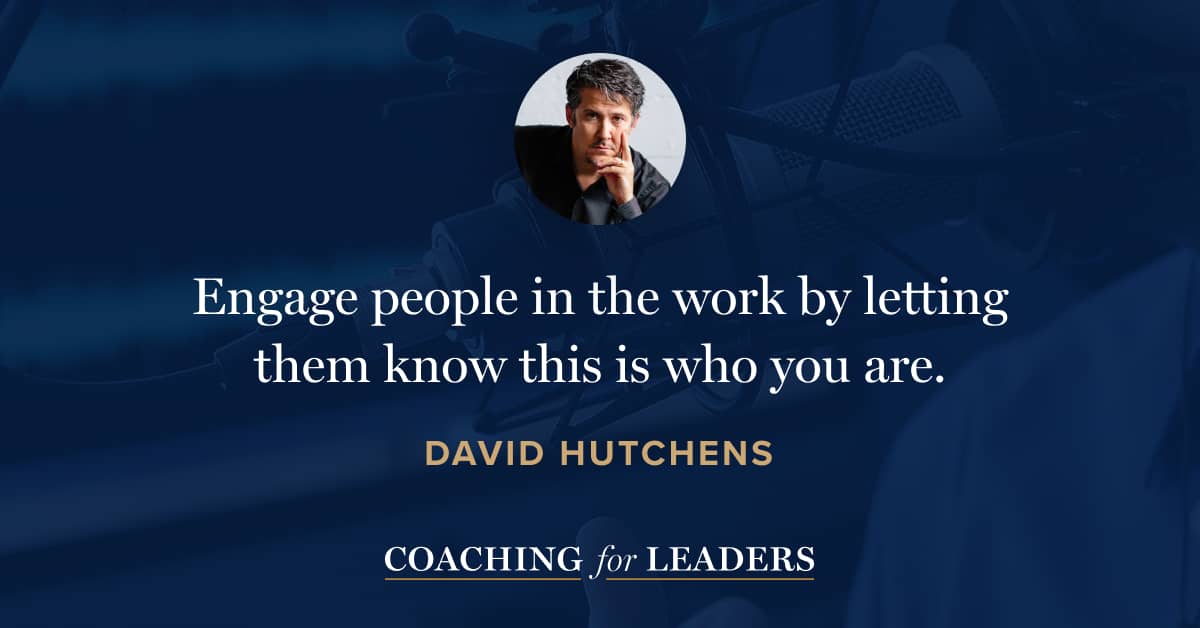David Hutchens: Leadership Story Deck
David Hutchens helps leaders find and tell their stories. He works with leaders around the world to find, craft, and tell their most urgent stories for the purpose of creating shared meaning, preserving culture, disseminating learning, and speeding change in organizations.
He has taught the Storytelling Leader program at some of the most influential organizations, including NASA, Paypal, Loreal Paris, Cisco, Walmart, Google, FedEx — and he’s written many books, including the Circle of the 9 Muses*, Story Dash*, and The Leadership Story Deck*. He is the co-creator with longtime friend of the show Susan Gerke of the GO Team program.
Many of us have heard that we should be vulnerable and, at least occasionally, share a story about ourselves. But how do you tell a story about yourself without making the entire interaction about you? In this episode, David and I explore how to best utilize a personal story to help the organization move forward.
Key Points
- While leaders more often tell stories about others, a personal story can be very powerful for relationship building.
- An effective, personal story is 2-3 minutes.
- Telling a story about yourself needs to have a leadership point. Be clear on the “so what?” once the story concludes.
- Even if you don’t quite capture all the emotion, say the word out loud that describes the emotion you want to convey.
- Share your stories with others to get objective insight to tighten your message.
Resources Mentioned
- Leadership Story Deck by David Hutchens (use code CFL24 for a limited-time discount)
- To receive a free copy of the Story Canvas, David invites listeners to reach out to him directly via david@davidhutchens.com
Related Episodes
- Ignite Change Through Storytelling, with Nancy Duarte and Patti Sanchez (episode 268)
- How to Start Better With Peers, with Michael Bungay Stanier (episode 635)
- What Vulnerable Leadership Sounds Like, with Jacob Morgan (episode 648)
Discover More
Activate your free membership for full access to the entire library of interviews since 2011, searchable by topic. To accelerate your learning, uncover more inside Coaching for Leaders Plus.





